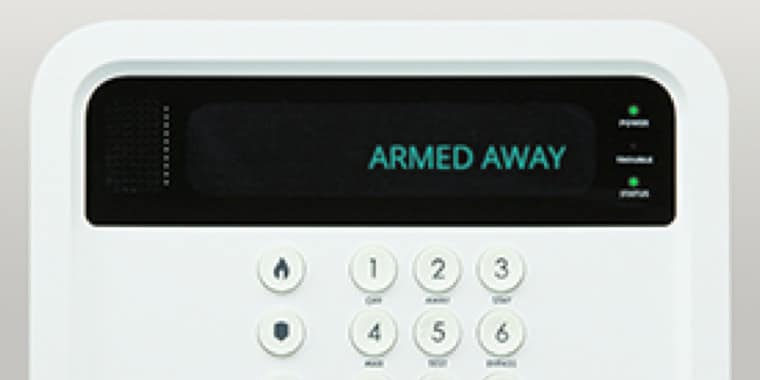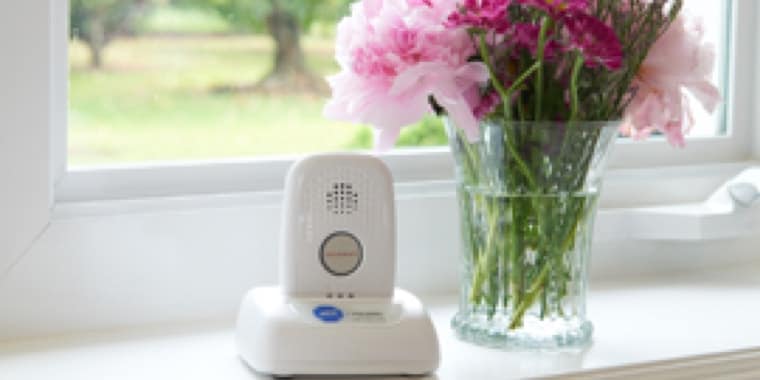Food allergies are a growing concern in the United States. For those affected, traveling with food allergies can be a daunting task.
According to a recent Fair Health study, private insurance claims for life-threatening food reactions increased 377 percent between 2007 and 2016, and, as noted by FoodAllergy.org, more than 200,000 Americans require emergency medical care for food allergies every year.1,2 Knowing how to travel with food allergies is incredibly important for your health.
Here are six proactive tips to limit your reaction risk:
- Pre-pack your food (and pack extra)
- Get to the airport early
- Talk to airlines and hotels before you leave
- Research local restaurants
- Communicate your allergy in any language
- Travel with medical alert technology
Pre-pack your food (and pack extra)
You know your allergy (or your child's) best, and you know which type of food to snack on while traveling. There's no guarantee you'll find exactly the food you're looking for in domestic or international airports, which is why our first tip for traveling with food allergies is to pack your own food and drinks, and always pack extra.
Packing your own food at home allows you to portion and seal it properly, ensuring it doesn't come in contact with potential allergens. Packing more than you think you'll need makes it easier to cope with unexpected flight delays or extra-long security lines. If you're traveling with kids, make sure to bring a few treats along with regular snacks to get them through the rough spots.
Get to the airport early
Traveling with food allergies means you'll need more lead time at the airport. Why? Because security checks invariably take longer when you're carrying epinephrine injectors or a liquid more than the allowed three ounces, such as milk alternatives for an allergic child. While TSA policy does make exceptions for medical conditions and allows carry-on of injectors (provided they're bagged and can be inspected), not all TSA staff have the same working knowledge of allergies.3 Time and patience are your ideal companions here; arrive early and be prepared to advocate for your allergy as required.
Talk to airlines and hotels before you leave
Next on our list of how to travel with food allergies: Talk to your airline and hotel before you leave to see if they can accommodate special requests. As noted by Stanford Medicine, airlines may be willing to suspend service of a particular allergen—such as peanuts—or create a "buffer zone" around your family if you call ahead.4 It's also a good idea to ask when planes are cleaned each day. If you can get the first flight after cleaning crews do their work, there's less chance of an allergic reaction.
When it comes to hotels, meanwhile, call ahead and inform staff of your allergy, and then call again the day you travel to make sure everything is ready. Allergy-friendly hotel options might include a mini-fridge in your room to hold your prepared food and rooms that are given extra care cleaning to reduce allergy risks. Also consider packing your own pillowcases or sheets, since not all hotels meet the same standards of cleanliness.
Research local restaurants
Traveling somewhere new is about more than just sight-seeing-experiencing local culture through food and drinks is a fundamental part of travel. It can be frustrating, however, to find yourself in a new city with no idea which restaurants meet your dietary needs and which ones could send you to the hospital. Best bet? Look online ahead of time. Read reviews and pick out a few allergy-friendly locations that catch your eye. In addition, consider mobile apps like Allergy Eats to help you find new-and safe-restaurants when you're out of town.
Communicate your allergy in any language
The biggest concern for international travelers with allergies is making sure staff at hotels and restaurants understand the potential risk. One option is learning the important words and phrases you need to explain allergy concerns. However, this leaves room for possible misinterpretation. Consider carrying "chef cards," small wallet-sized cards that clearly communicate to local staff and servers the nature of your allergy and how they can help you stay safe.
Travel with medical alert technology
Before leaving on any trip—no matter how close or how far from home—talk to your allergist or doctor and make sure you have both epi-pens and prescriptions for refills. Don't be afraid to use your medicine as needed; better to stand in line at the pharmacy than run the risk of a hospital visit. You may also want to invest in medical alert technology that puts you in touch with help if you experience a sudden reaction or can't get to your epi-pen in time. Think of it like a back-up: You may never need this kind of alert solution, but it's better safe than sorry.
Traveling abroad? Staying close to home? No matter where you're headed, traveling with food allergies can be challenging. Limit your reaction risk by taking proactive steps: Pre-pack your food, get to the airport early, do your research, call ahead and make sure you're prepared with language allergy cards and medical alert technology.
Resources
1) "Food Allergies, A Growing Health Concern." Fair Health, 2017. Accessed June 1st, 2018. https://s3.amazonaws.com/media2.fairhealth.org/whitepaper/asset/Food%20Allergy%20White%20Paper%20Final.compressed.pdf
2) "Food Allergy 101, Facts and Statistics." Food Allergy Research and Education. Accessed May 25th, 2018. https://www.foodallergy.org/life-with-food-allergies/food-allergy-101/facts-and-statistics
3) "Traveling with Children." Transportation Safety Administration. Accessed May 25th, 2018. https://www.tsa.gov/travel/special-procedures/traveling-children
4) Lianne Mandelbaum. "Flying with Food Allergies: Safety Tips" Stanford Medicine Sean N. Parker Center for Allergy and Asthma Research, May 2015. Accessed May 25th, 2018. https://med.stanford.edu/allergyandasthma/news/news-from-our-center/travel-tips.html





